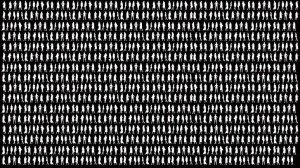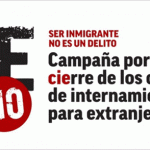Pro Igual´s Intervention at the OSCE Human Dimension Implementation Meeting, Working Session 3: Violence Against Women
The following are the summary and recommendations of the joint report by Spanish NGOs Pro Igual and Ferrocarril Clandestino on the situation of migrant women in Spanish Detention Centers for Foreigners. The full report is available here.
Detention Centers for Foreigners are prisons in all but a name. Both governmental institutions and civil society have decried the appalling conditions and violations of human rights there. What is important to note is that detainees have not committed any crime, but merely an administrative infraction of not having papers in order, which presents less danger for the public than incorrect parking.
While both men and women face violations of their human rights, female detainees face a number of specific concerns. These include: sexual harassment by the guards; ill-treatment of pregnant and breastfeeding women; separation of mothers from minor children; lack of access to general medical and gynecological care, and lack of adequate nutrition even for pregnant women. Victims of human trafficking get no support whatsoever, even though they may be eligible for residence on humanitarian grounds.
Many migrant women end up in detention centers because of police raids based on the controversial practice of ethnic profiling, condemned by a number of international human rights bodies.
On the basis of these findings, we would like to recommend to the Spanish authorities the following:
- Human rights NGOs and monitors should be allowed to enter detention centers and privately interview inmates – this is often sabotaged by the centers´ directors.
- All personnel of the detention centers must wear visible identification badges and face sanctions for failure to comply.
- All allegations of ill-treatment, especially sexual abuse of female inmates, by the guards must be investigated and prosecuted.
- All inmates should have access to independent legal counsel, and translation if necessary.
- The authorities should declare a temporary moratorium on expulsions of migrant women, pending the review of their cases.
- Women detainees in particular should have gender-sensitive healthcare and adequate nutrition.
- Pregnant and breastfeeding women should under no circumstances be detained or separated from their children and families.
- Suspected victims of human trafficking should receive necessary legal, medical and other assistance.
- The authorities should decisively end ethnic profiling practices by the police.


 November 24th, 2019
November 24th, 2019 




